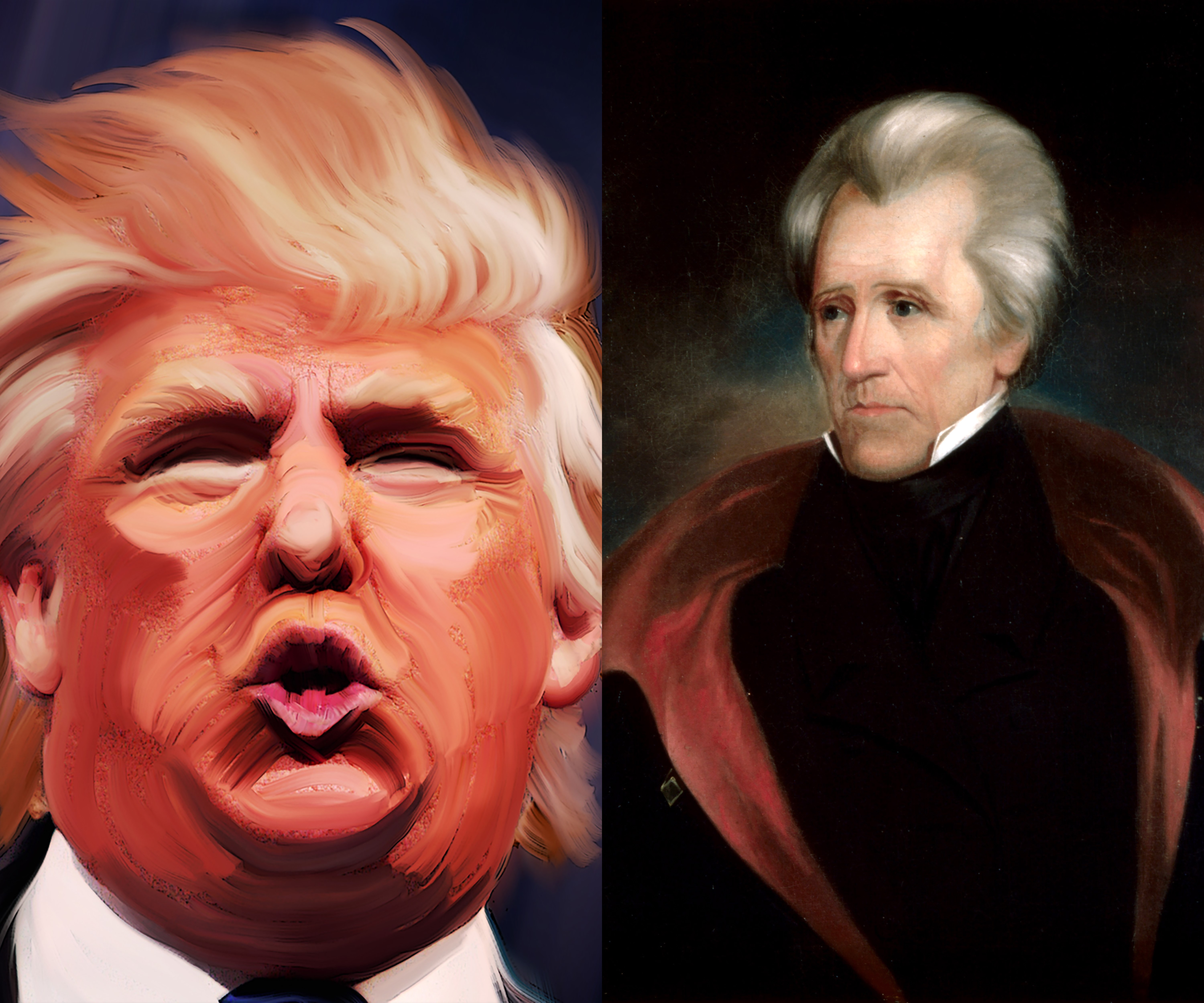Andrew Jackson Is a Poor Presidential Role Model
Donald Trump added a portrait of Andrew Jackson to the White House Oval Office shortly after his inauguration. Why Jackson?
Well, Jackson’s defeat of incumbent John Quincy Adams in the 1828 election was the first great US political upset in which an anti-establishment candidate defeated an insider. This comparison no doubt pleases the man who kept Hillary Clinton from the White House.
Like Trump, Jackson also styled himself as a champion of the “common man,” and that’s a distinction that somehow follows him to this day. But does Jackson deserve to be remembered so fondly as the one who put power in the hands of the people? Let’s break down some of his greatest hits.
- Egalitarian Reforms. The Jacksonian Era was typified by a reforming zeal, including movements for the abolition of slavery and the rights of women. While these movements might have used egalitarian Jacksonian rhetoric, they had little to do with the real Andrew Jackson, who both owned slaves and subscribed to an already outdated cult of masculinity preoccupied with, among other things, defending public female virtue. (The man loved a good duel.)
- American Indian Removal. Jackson was the architect of the compulsory removal of Native Americans from their legal homes. This was a national plan for ethnic cleansing, coupled with the forcible redistribution of property from its rightful owners.
- Checks and Balances. Jackson’s Indian removal policy also ignored the system of checks and balances inherent in the federal system, directly defying the Supreme Court’s ruling in the 1831 case Cherokee Nation v. State of Georgia. Jackson did, however, stop short of calling Chief Justice John Marshall a “so-called judge.”
- The National Bank. The federal government had overreached its powers in creating the Second National Bank, and Jackson killed that institution. His dedication to defeating the bank, however, was driven by personal animosity more than sound intellectual foundations. (It wasn’t enough for Jackson’s enemies to lose; they had to be destroyed, and he used his power as president to wreak that destruction.) Jackson overstepped his own constitutional authority in his attack, and fighting one wrong with another is hardly great policy.
- State Nullification. Similarly, Jackson’s action against state nullification, when South Carolina sought to invalidate the federal Tariffs of 1828 and 1832 on the grounds that they were unconstitutional, seems to have been less about principle than about his personal split with his former vice president, John C. Calhoun. Jackson’s stance against states’ rights aided the evolution of a powerful national government based on vigorous military suppression, a trademark of the Jacksonian presidency.
- Spoils System. Jackson’s embrace of the spoils system, rewarding his supporters (or cronies) with political positions, further concentrated and entrenched his and later presidents’ executive power.
What is the takeaway here? Rather than decentralizing power or returning it to the people, Jackson magnified his own. As a matter of fact, he claimed that he embodied the people in the same way that Louis XIV believed that he was France, earning Jackson the title “King Andrew I” from his opponents.
In short, for those who support liberty, Trump has chosen a troubling model for his presidency.
This makes Thomas Jefferson’s words to Daniel Webster in 1824 all the more important to remember:
I feel much alarmed at the prospect of seeing General Jackson President. He is one of the most unfit men I know of for such a place. He has had very little respect for laws and constitutions, and is, in fact, an able military chief. His passions are terrible. When I was President of the Senate, he was Senator; and he could never speak on account of the rashness of his feelings. I have seen him attempt it repeatedly, and as often choke with rage. His passions are, no doubt, cooler now; he has been much tried since I knew him, but he is a dangerous man.
Republished from Learn Liberty.
Amy Sturgis
Amy H. Sturgis earned her Ph.D. in intellectual history from Vanderbilt University, specializes in Science Fiction/Fantasy and Native American Studies, and teaches at Lenoir-Rhyne University.
This article was originally published on FEE.org. Read the original article.



Pingback:Andrew Jackson Is a Poor Presidential Role Model | megalextoria